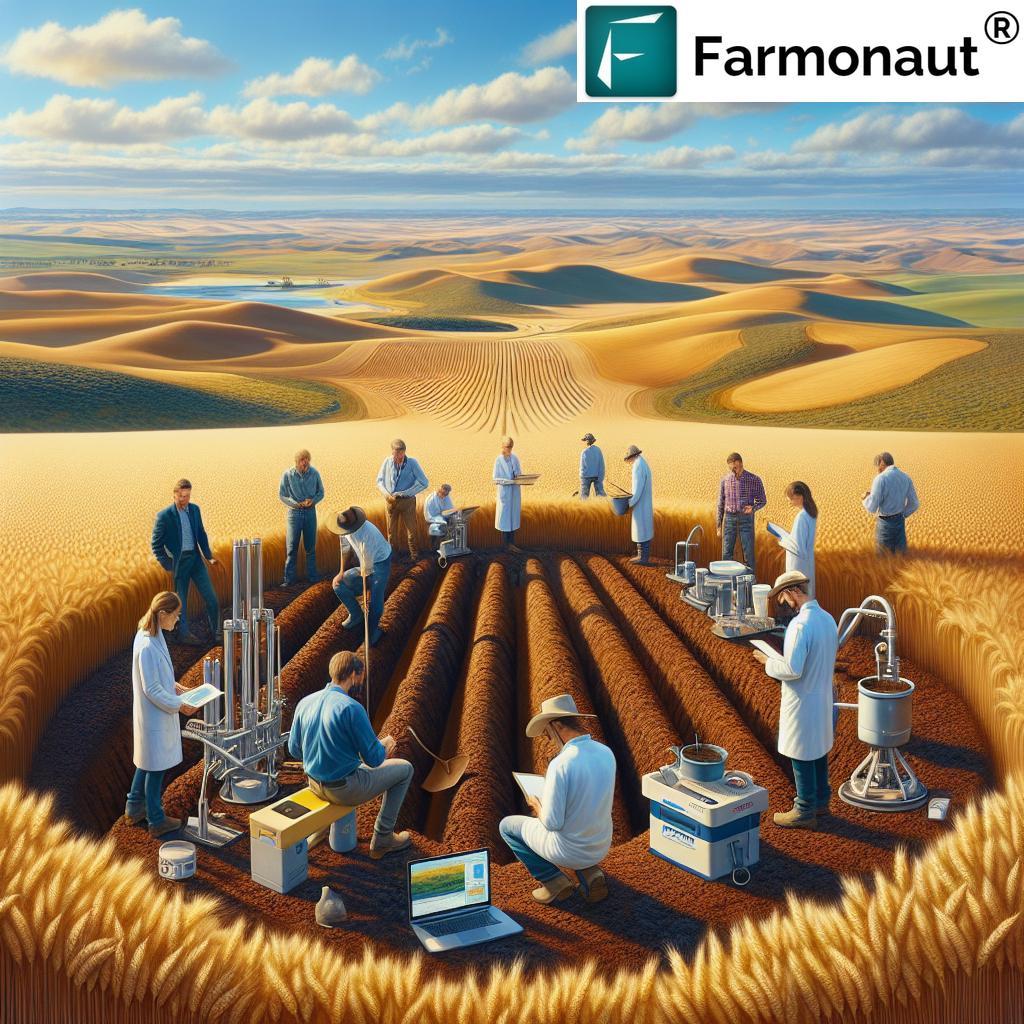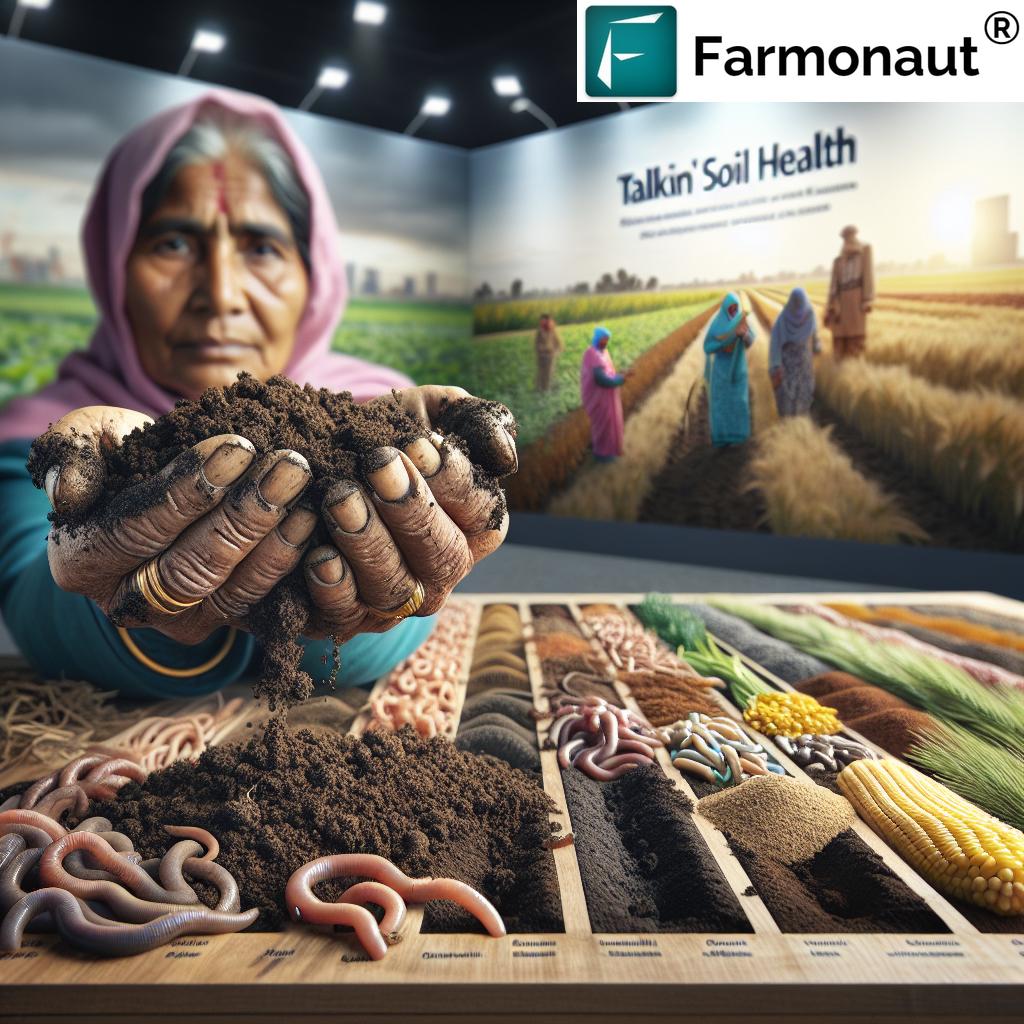Revolutionizing Western Australia’s Agriculture: Insights from Talkin’ Soil Health Conferences
“Talkin’ Soil Health” conferences span multiple locations across Western Australia’s Wheatbelt region, including York, Dalwallinu, Katanning, and Kojonup.
Welcome to our comprehensive exploration of the groundbreaking “Talkin’ Soil Health” conferences that are reshaping Western Australia’s agricultural landscape. In this blog post, we’ll delve into the latest developments in soil health management and sustainable agriculture practices that are being discussed and implemented across the Wheatbelt region. From York to Dalwallinu, Katanning to Kojonup, these symposiums are bringing together the brightest minds in agronomy, soil science, and land management to address critical issues in soil conservation and agricultural productivity improvement.
The Importance of Soil Health in Western Australia
Western Australia’s unique agricultural landscape presents both challenges and opportunities for farmers and land managers. The region’s diverse soils, ranging from the sandy coastal plains to the rich loams of the Wheatbelt, require tailored approaches to maintain their health and productivity. The “Talkin’ Soil Health” conferences recognize this diversity and aim to provide localized solutions for sustainable agriculture practices.
- Soil degradation prevention
- Enhancing soil biology in farming
- Improving water retention capabilities
- Increasing nutrient cycling efficiency
These critical aspects of soil health are at the forefront of discussions during the conferences, highlighting the importance of maintaining and improving soil quality for long-term agricultural sustainability.
Conference Highlights Across the Wheatbelt
The “Talkin’ Soil Health” conferences are not just single events but a series of symposiums held across various locations in Western Australia. Each conference brings its unique focus and expertise, tailored to the specific needs of the local agricultural community.
| Location | Key Topics | Notable Speakers |
|---|---|---|
| York | Soil biology enhancement, Organic matter management | 2 International keynotes, 5 Local experts |
| Dalwallinu | Dryland farming techniques, Soil moisture conservation | 1 International keynote, 6 Regional specialists |
| Katanning | Pasture soil health, Livestock impact management | 2 International keynotes, 4 Industry leaders |
| Kojonup | Soil acidity management, Nutrient cycling in diverse farming systems | 1 International keynote, 7 Soil scientists |
This diverse range of locations ensures that farmers and land managers from all corners of the Wheatbelt have access to cutting-edge information and techniques relevant to their specific soil types and agricultural practices.
Innovative Soil Health Management Techniques
At the heart of the “Talkin’ Soil Health” conferences are the innovative techniques and strategies being developed and shared to improve soil health across Western Australia. These methods are designed to address the unique challenges faced by farmers in the region, including soil degradation, water scarcity, and nutrient depletion.
- Cover Cropping: Utilizing specific plant species to protect and enrich the soil during fallow periods.
- Minimal Tillage: Reducing soil disturbance to maintain soil structure and organic matter.
- Precision Agriculture: Employing technology to optimize resource use and reduce environmental impact.
- Biochar Application: Incorporating carbon-rich materials to enhance soil fertility and water retention.
These techniques are not only discussed theoretically but are often demonstrated through practical workshops and field trips, allowing attendees to see the real-world application and benefits of these innovative approaches.

The Role of Technology in Soil Health Management
As we move towards more sustainable and efficient farming practices, technology plays an increasingly crucial role in soil health management. The “Talkin’ Soil Health” conferences showcase the latest advancements in agritech, demonstrating how farmers can leverage these tools to make more informed decisions and optimize their soil management strategies.
One such technology that’s making waves in the agricultural sector is Farmonaut, a pioneering agritech company offering advanced, satellite-based farm management solutions. Through its android, iOS, and web applications, as well as its comprehensive API, Farmonaut is making precision agriculture more accessible and affordable for farmers across Western Australia and beyond.
Key features of Farmonaut’s technology include:
- Real-time crop health monitoring using satellite imagery
- AI-based advisory systems for personalized farm management
- Soil moisture analysis for optimized irrigation
- Weather forecasting for improved planning
These tools empower farmers to make data-driven decisions, leading to more efficient resource use and improved soil health outcomes.
Explore Farmonaut’s solutions:
For developers interested in integrating Farmonaut’s technology:
Sustainable Agriculture Practices for Western Australia
The “Talkin’ Soil Health” conferences emphasize the importance of adopting sustainable agriculture practices that are tailored to Western Australia’s unique environmental conditions. These practices aim to maintain and improve soil health while ensuring long-term productivity and environmental stewardship.
- Crop Rotation: Implementing diverse crop sequences to break pest cycles and improve soil structure.
- Integrated Pest Management: Utilizing biological controls and targeted interventions to reduce chemical use.
- Soil Testing and Monitoring: Regular analysis to optimize nutrient management and prevent imbalances.
- Water Conservation: Implementing efficient irrigation systems and water-saving techniques.
By adopting these practices, farmers can not only improve their soil health but also contribute to the overall sustainability of Western Australia’s agricultural sector.
“The conferences address soil health management in diverse areas, including the Northern Agricultural Coast and South Coast regions of Western Australia.”
Regional Focus: Northern Agricultural Coast and South Coast
The “Talkin’ Soil Health” conferences recognize the diverse agricultural landscapes within Western Australia, with specific attention given to the unique challenges and opportunities in the Northern Agricultural Coast and South Coast regions.
Northern Agricultural Coast
This region, characterized by its Mediterranean climate and sandy soils, faces distinct challenges in maintaining soil health:
- Wind erosion prevention
- Managing soil water repellence
- Improving nutrient retention in sandy soils
- Adapting to climate variability
The conferences in this region focus on innovative techniques such as clay spreading and delving to improve soil structure and water-holding capacity.
South Coast
The South Coast region, with its diverse soil types and higher rainfall, presents different soil health management challenges:
- Managing waterlogging and salinity
- Improving soil acidity
- Enhancing soil organic matter in high-rainfall areas
- Balancing crop and livestock systems
Conferences in this area emphasize practices like controlled traffic farming and the use of lime to manage soil acidity, which are crucial for maintaining productive agricultural systems in this unique environment.

The Power of Knowledge Sharing and Networking
One of the most valuable aspects of the “Talkin’ Soil Health” conferences is the opportunity for knowledge sharing and networking among participants. These events bring together a diverse group of stakeholders, including:
- Farmers and land managers
- Agronomists and soil scientists
- Agricultural researchers
- Government representatives
- Agribusiness professionals
This mix of expertise and experience creates a rich environment for learning and collaboration. Attendees have the chance to:
- Participate in interactive workshops
- Engage in panel discussions with industry experts
- Attend field trips to see innovative practices in action
- Network with peers and potential collaborators
These interactions often lead to the formation of new partnerships and the sharing of practical, on-the-ground experiences that can be immediately applied to improve soil health management practices.
International Perspectives on Soil Health
The “Talkin’ Soil Health” conferences don’t just focus on local expertise; they also bring in international keynote speakers to provide a global perspective on soil health management. These experts share insights from different agricultural systems around the world, offering valuable lessons that can be adapted to Western Australia’s unique conditions.
Some of the international topics covered include:
- Global trends in sustainable agriculture
- Innovative soil conservation techniques from other arid regions
- The role of soil health in climate change mitigation
- Advances in soil microbiology and its impact on crop productivity
By incorporating these global perspectives, the conferences ensure that Western Australian farmers and land managers are at the forefront of soil health management practices, ready to face the challenges of modern agriculture.
The Role of Government and Industry Support
The success of the “Talkin’ Soil Health” conferences and the implementation of soil health management practices across Western Australia rely heavily on support from both government and industry bodies. These stakeholders play crucial roles in:
- Providing funding for research and development
- Offering incentives for farmers to adopt sustainable practices
- Developing policies that promote soil conservation
- Facilitating knowledge transfer between research institutions and farmers
The conferences often feature presentations from government representatives and industry leaders, outlining current initiatives and future plans to support soil health management in the region. This collaborative approach ensures that the latest research and best practices are effectively disseminated and implemented across Western Australia’s agricultural sector.
The Future of Soil Health Management in Western Australia
As we look to the future, the “Talkin’ Soil Health” conferences continue to evolve, addressing emerging challenges and opportunities in soil health management. Some of the key areas of focus for future conferences include:
- The impact of climate change on soil health and adaptation strategies
- Integration of digital technologies for precision soil management
- Development of new crop varieties suited to Western Australia’s soil conditions
- Innovative approaches to carbon sequestration in agricultural soils
By staying at the forefront of these developments, the conferences ensure that Western Australian agriculture remains resilient, productive, and sustainable in the face of future challenges.
Becoming a Soil Health Champion
The “Talkin’ Soil Health” conferences aim to inspire attendees to become soil health champions in their communities. This involves:
- Implementing learned practices on their own farms
- Sharing knowledge with neighboring farmers
- Participating in local soil health initiatives
- Advocating for policies that support sustainable soil management
By taking on this role, attendees can help amplify the impact of the conferences, leading to widespread improvements in soil health across Western Australia.
Conclusion: A Soil-Healthy Future for Western Australia
The “Talkin’ Soil Health” conferences represent a pivotal initiative in revolutionizing Western Australia’s agriculture. By bringing together experts, farmers, and industry leaders, these events are fostering a community dedicated to sustainable soil management practices. The insights shared, technologies showcased, and connections made during these conferences are instrumental in shaping the future of agriculture in the region.
As we continue to face challenges such as climate change, water scarcity, and the need for increased food production, the importance of maintaining healthy soils cannot be overstated. The “Talkin’ Soil Health” conferences provide the knowledge, tools, and inspiration needed to ensure that Western Australia’s agricultural lands remain productive and sustainable for generations to come.
We encourage all stakeholders in Western Australia’s agricultural sector to engage with these conferences, implement the learnings, and contribute to the ongoing dialogue about soil health. Together, we can build a resilient and thriving agricultural future for Western Australia.
FAQ Section
- Q: Who can attend the “Talkin’ Soil Health” conferences?
A: The conferences are open to farmers, land managers, agronomists, researchers, government officials, and anyone interested in soil health and sustainable agriculture in Western Australia. - Q: How often are these conferences held?
A: The frequency can vary, but they are typically held annually or bi-annually in different locations across the Wheatbelt region. - Q: Are there any hands-on learning opportunities at the conferences?
A: Yes, many conferences include workshops, field trips, and practical demonstrations to provide hands-on experience with soil health management techniques. - Q: How can I stay updated on future “Talkin’ Soil Health” conferences?
A: You can follow the official websites of Western Australia’s agricultural departments, catchment councils, and relevant industry bodies for announcements about upcoming conferences. - Q: Are there any resources available for those who can’t attend the conferences in person?
A: While the in-person experience is valuable, many conferences now offer online resources, recorded sessions, and summary reports for those unable to attend.
Farmonaut Subscriptions






